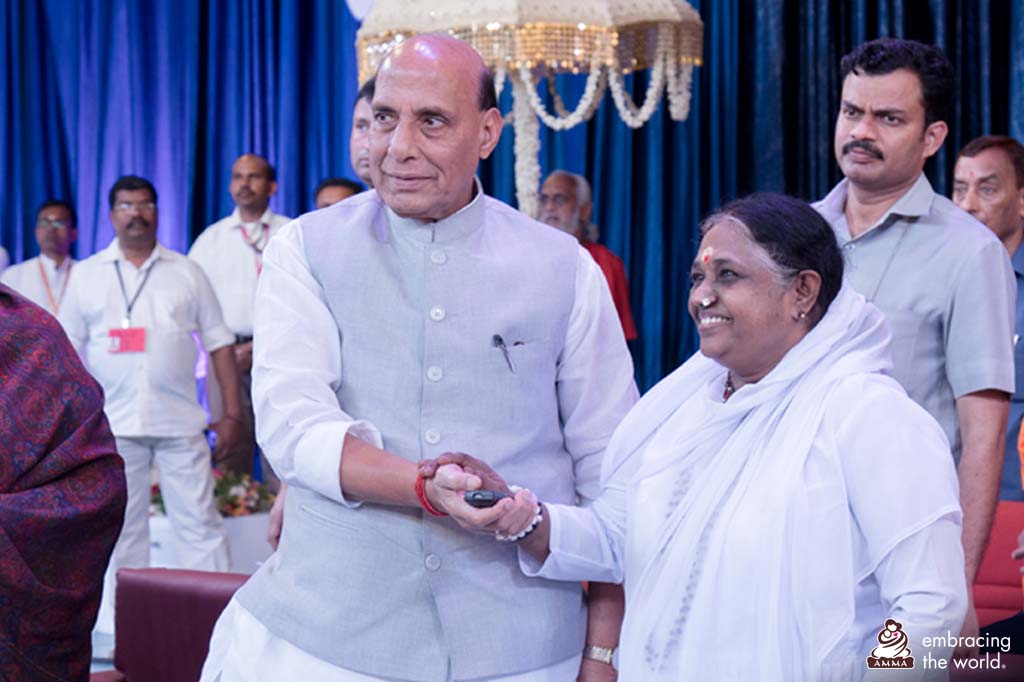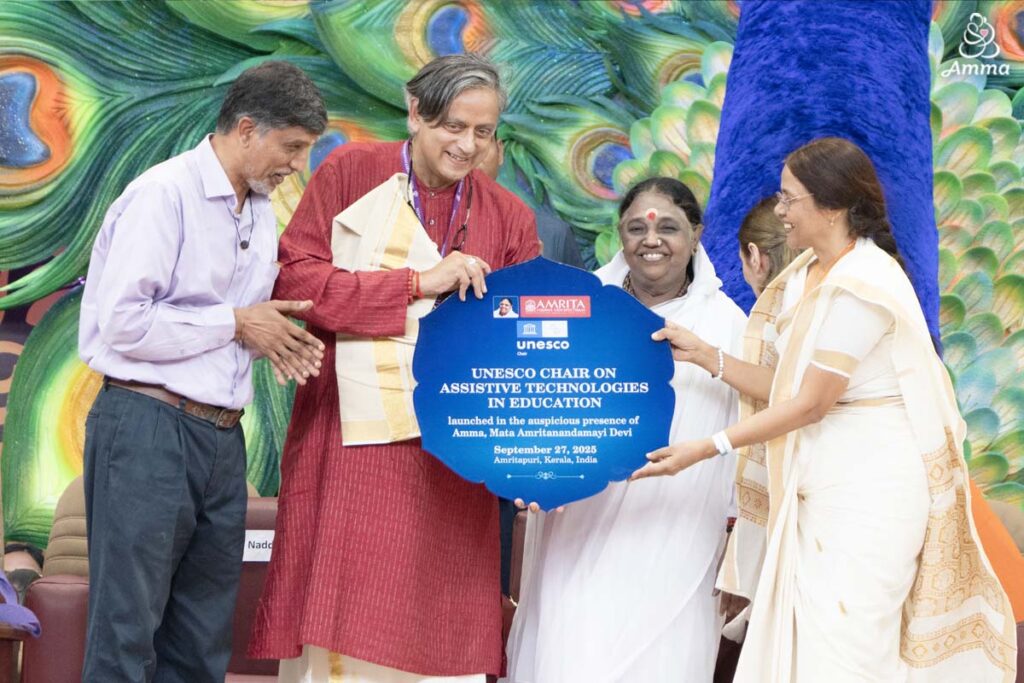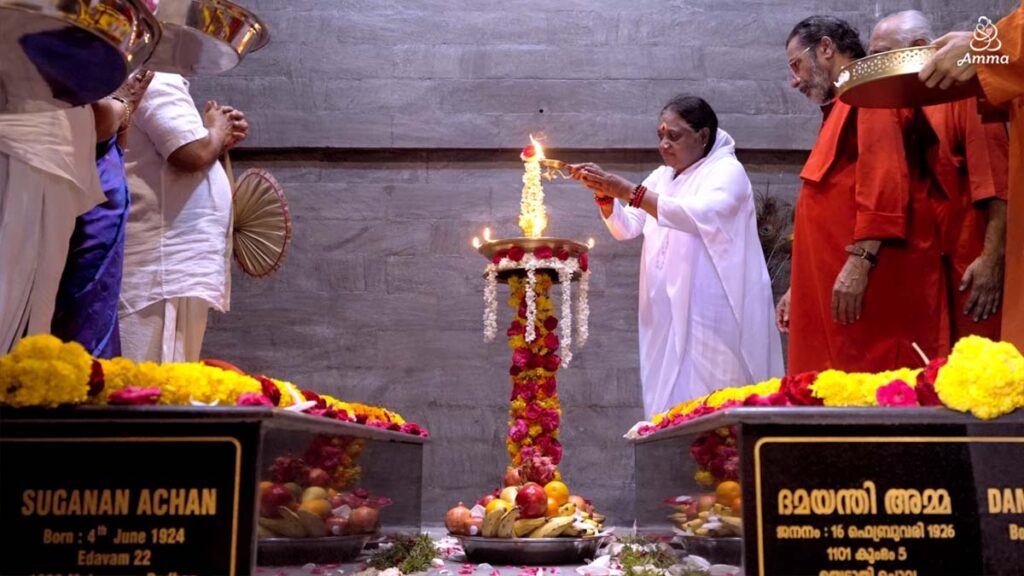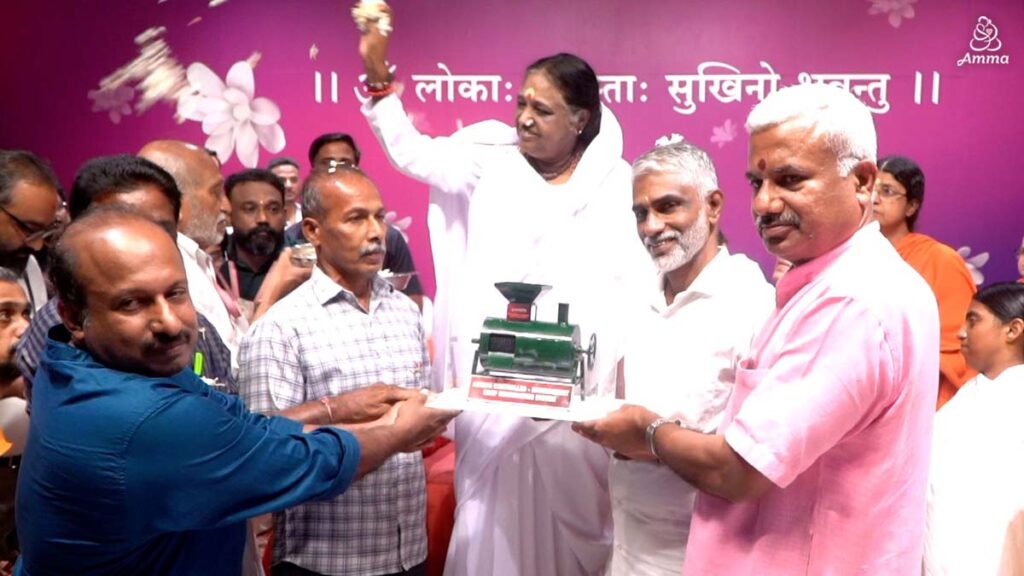One of the things that has always made Amrita Vishwa Vidyapeetham stand out is its dedication to compassion-driven research and development aimed at helping the poor, the sick and the needy. This is something Amma, the university’s Chancellor, has insisted upon since the institution’s inception.
“In our approach to sustainable development, we should not forget that it is by strengthening the people at the base of the pyramid that the entire edifice of society becomes healthy and strong,” says Amma.
It is with this goal in mind that Amrita University initiated the “Amrita School for Sustainable Development” at Amma’s 66th birthday event in Amritapuri. The school was inaugurated by Shri Rajnath Singh, Honourable Minister of Defence, Govt of India.
The school will have undergraduate, master’s and PhD programs that focus on areas in line with United Nations’ Sustainable Development Goals (SDGs). The curriculum utilises the E4LIFE framework – Experience, Embrace, Empower and Engage with communities.
This approach centers on experiential learning in the field alongside classroom and research studies. The ultimate goal is to dynamically integrate social, economic and cultural aspects of sustainable development.
The majority of these projects – be they in the fields of clean water, village-outreach, toilet-construction, healthcare or education – will involve the beneficiaries themselves being active participants in the solutions to the various problems they face. In this way, the villagers will gain the skills they need to maintain their own self-reliance.
“I’ve travelled to villages in the Northeastern states of India where I found innocent and naive people, most of them living in poverty,” explains Krishna Sreesuthan. She is among the first group of students to have enrolled at the PhD level.
“Since 2017, I have been part of Amrita SeRVe, our self-reliant village project. These villagers are the life support of our country because they grow our food. It is our – the so-called educated people’s – responsibility to support their development. The survival of our nation depends on the survival of our villages.”
The Mata Amritanandamayi Math has adopted more than 100 villages across India. Faculty and students at Amrita University have been striving to help these villages by creating tailor-made solutions that foster sustainable development and social-economic progress. It is Amma’s belief that such programs help not only the villagers, but also the students – awakening compassion in their hearts.
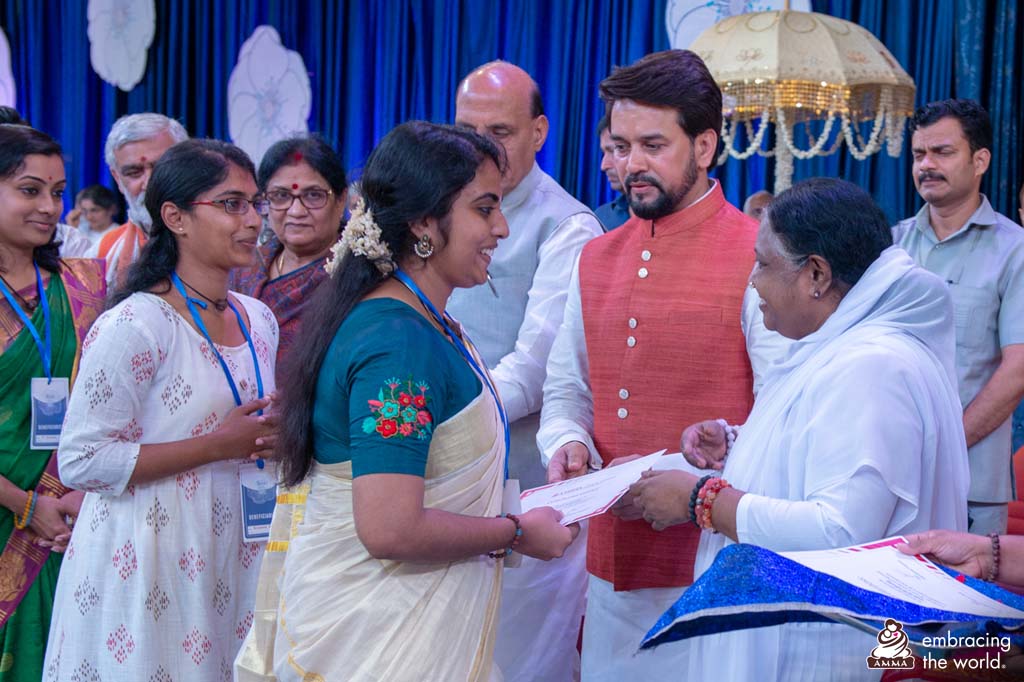
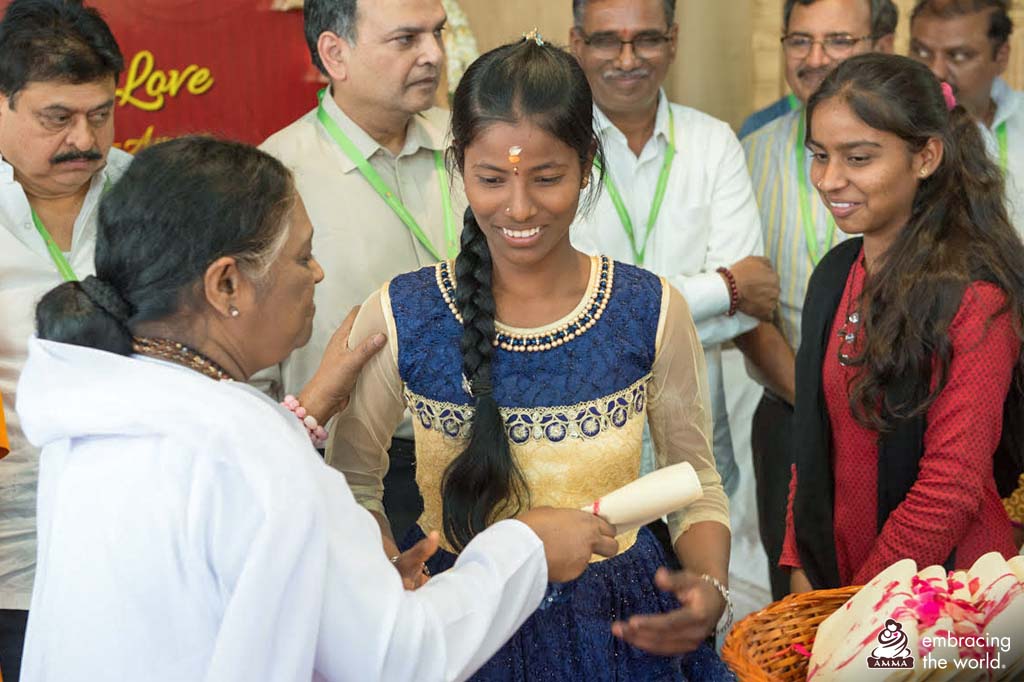
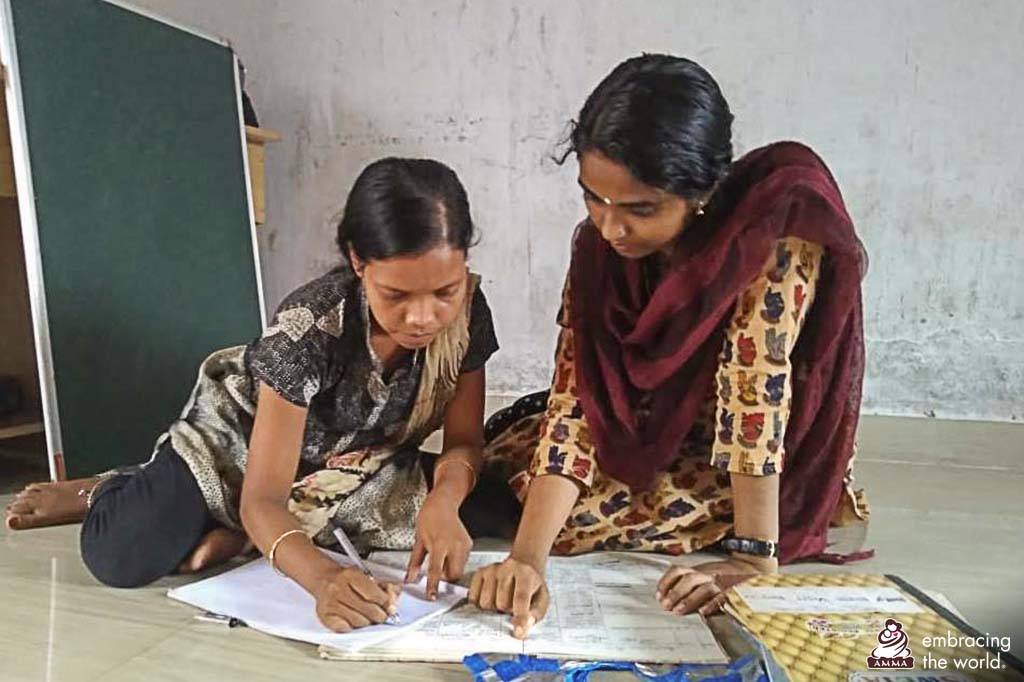
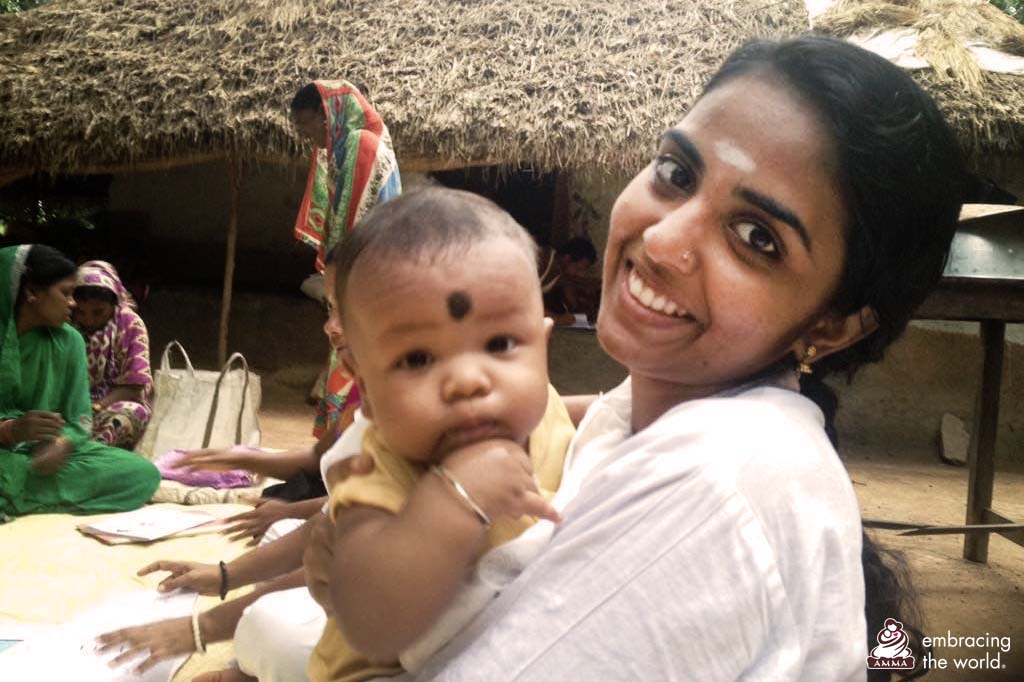
Sreesuthan is a recipient of the E4LIFE International PhD Fellowship, a scholarship that will be given to 100 students from all over the world. Shri Anurag Singh Thakur, India’s Honourable Minister of State for Finance & Corporate Affairs, launched the initiative at Amma’s birthday by presenting the award to the first 10 students.
Every fellowship for the PhD in Sustainable Development is worth up to $35,000 US over a period of four years. Studies will contribute towards the development and implementation of a sustainable solution in the community where the students are at work. Thérèse Capet from France is the first international student to qualify.
Sreesuthan’s research is on the development of Saukhyam Pads, our reusable pad project that is based on the use of banana fiber. With a Master’s in Biotechnology, her focus is on menstrual hygiene management.
She explains, “Basically, in rural areas women are shy to open up about their menstruation-related problems. Unfortunately, most of them don’t follow a proper hygienic method. This results in early gynaecological problems. I am aiming to address this issue and to reach them to provide proper awareness and offer them an affordable and safer solution.”
“There is no better option for us to understand what life is,” concludes Sreesuthan. “Through this program I am getting an opportunity to use my brain to practically serve people who are in need. I can apply the knowledge I am learning beyond the realm of theory. Think it, use it and even prove it.”


